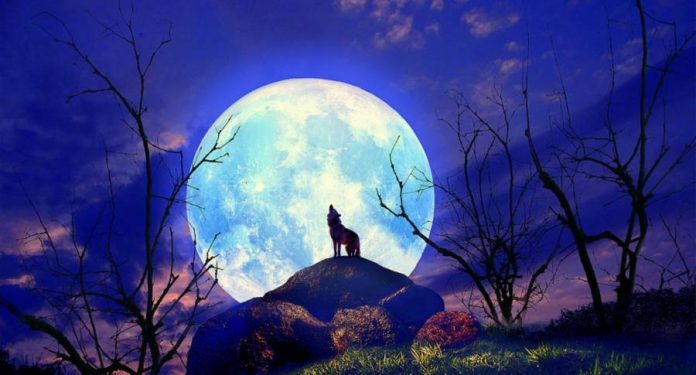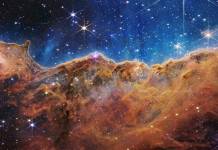
The first full moon of 2017 is upon us with January’s Wolf Moon, visible in night skies since Wednesday and reaching its most visible point on Thursday morning.
The Wolf Moon will be up in the sky for at least two more days as it starts to wane orbiting our planet.
The sun’s reflection angle combined with Earth’s shadow result in the Moon’s ever-changing phases each month.
This next couple of days will bring a great opportunity to snap amazing photos of the Wolf Moon, but there are a few things you need to know if you want to try and capture glorious photos instead of dark pictures of the night sky with a white dot.
A bit of history on the Wolf Moon
The Wolf Moon gets its name from the Native American folklore, which named it so because of the roaming wolf packs that hauled at the full moon in January.
Native American tribes also called this moon the Old Moon, and they gave names to the eleven remaining full moons of the year according to their tradition.
Other cultures also relate January’s full moon to wolves and even werewolves. Yes, there are people that still believe this particular full moon can turn men into beasts.

Tips and strategies to take quality photos of the Wolf Moon
Although it may seem obvious, the first thing you should do if you want to take any nature photography is to make sure that weather conditions are suitable for the task.
Check the weather forecast in your location for the night you intend to capture the Wolf Moon or any full moon you want to photograph in the future. A clear sky is mandatory to get a good look and a great photograph.
It is also recommended to get away from cities if possible since the high population density and urbanization of most cities result in light pollution that affects visibility at night and image fidelity when taking photos.
High ground won’t make much of a difference, but if you can get on a rooftop or a hill with solid, stable ground, the better.
What about the equipment?
Right now in Seattle – there's a bad moon on the rise #WolfMoon pic.twitter.com/tqPl0IUxhT
— Tim Durkan Photography (@timdurkan) January 13, 2017
To snap a quality picture of the Wolf Moon and any full moon, you will need some minimum requirements like a DSLR camera, a telephoto zoom lens, a tripod, patience, and a bit of luck.
Camera makers like Canon and Nikon are among the top brands available in the market, and they have a broad range of DSLR cameras ranging from affordable to very expensive.
The good news is that most of them are fine since they are compatible with an essential piece of equipment you will need: The telephoto zoom lens. If you want better quality, have in mind cameras with bigger sensors cost more.
So for example, the latest EOS Rebel T6 DSLR by Canon with a base lens costs $499. A quality lens that will do the job, like the EF 70-200mm f/4 with image stabilization runs for $1,149, but you can probably rent it for much less at a dedicated local store.
You can expand the reach of the lens with a teleconverter, but it is not recommended since it decreases image quality and shortens aperture range. Once you have your camera and lens, you need to put it on a good, stable tripod and aim it at the Wolf Moon.
Manual settings are mandatory
To avoid grain in the picture, you should use an ISO as low as possible, usually 100 in Canon cameras. Shutter speed should be accordingly fast at 1/125 or 1/250 to avoid burning the image.
At these speeds, a remote shooter is recommended to avoid getting a blurry picture when you press the button on the camera. Aperture should not be too open, starting at f/5.6 and above depending on how bright the moon is that night. Manual focus is up to you, of course, but it might get tricky using these settings so be patient.
If you don’t get to take a perfect photo, you can always make up for it with Photoshop by composing a new photo out of the best images you have. In the end, luck and skill are just as important when trying to photograph a full moon.
Source: Space.com











